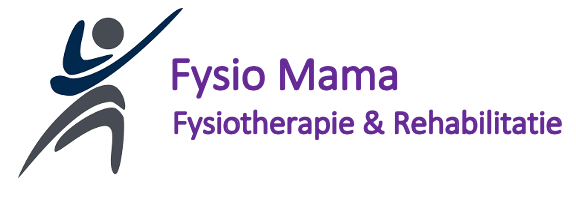Physiotherapy
Physiotherapists are health care professionals specialized in the treatments of complaints involving the human musculoskeletal system. They treat muscles and/ or joints related complaints that can benefit from exercise, or assist with exercises to help the body with its natural recovery process.
These can be sports-related complaints, complaints incurred during work, complaints due to an accident or illness, a wrong movement or simply because the body is getting older.
Work methodology
The visit to the physiotherapist can be divided into five steps: the anamnesis, the examination, advice, treatment and the evaluation.
The various steps are explained below:
Anamnesis
The visit always starts with an extensive question and answer session. This applies in both cases, whether you come with or without a referral letter.
During this interview (the anamnesis) you will be asked questions about your complaints, how long you have been bothered by them and the way in which you are hindered in your daily activities.
Physical examination
If it appears from this conversation that the physiotherapist can help you, a careful examination of the area will be carried out. The therapist will
- Observe you both statically and during movements
- Palpate and feel the affected area, and often areas above and below the problem area.
- Check muscle strength, range of movement and ability to carry out functional tasks
- Perform special tests which are specific to the area of concern.
The information gotten during the physical examination / assessment will be used to establish a cause of the problem and therefore a diagnosis.
The therapist will then discuss the treatment plan with you, depending on your treatment request.
A treatment plan will be made depending on your treatment request.
Advice
The physiotherapist will explain the possible cause of your complaints and what you can do about it. You will receive advice on how to prevent future injuries.
Treatment
Treatments maybe hands-on, hands-off, or a combination.
Hands-on approach is important in musculoskeletal complaints to increase joint and muscle mobility, relieve pain and reduce muscle tension.
This involves not only massage but also guided passive/active movement and joint mobilisations.
Some areas of focus/ Complaints:
- Shoulder complaints
- Back complaints
- Neck complaints
- Stress complaints
- Headaches
- Dizziness
- Knee, ankle and foot complaints
- CANS/RSI, Tennis/Golfers elbow
- Sports injuries; muscle and tendon complaints
- Post-operative rehabilitation for knee ligaments, meniscus, knee / hip prosthesis.
- Osteoarthritis, arthrosis, fibromyalgia
- Carpal tunnel syndrome
- Whiplash
- Chronic pain complaints
- Neurological complaints such as stroke



